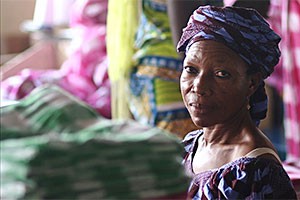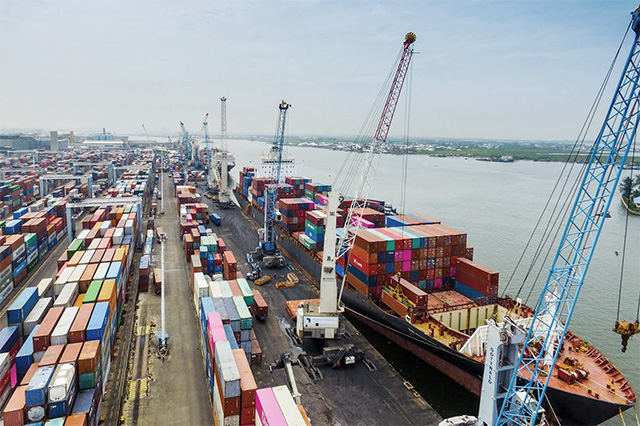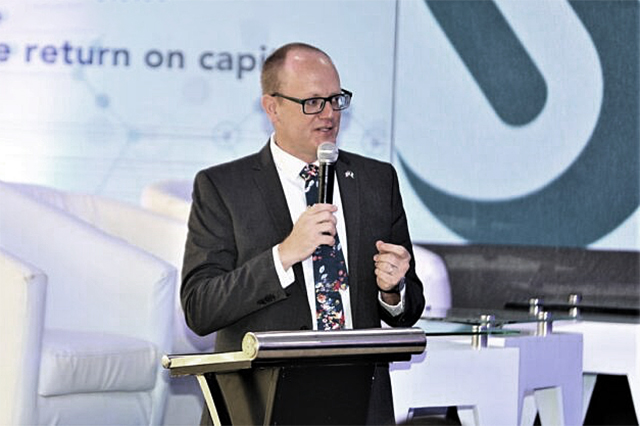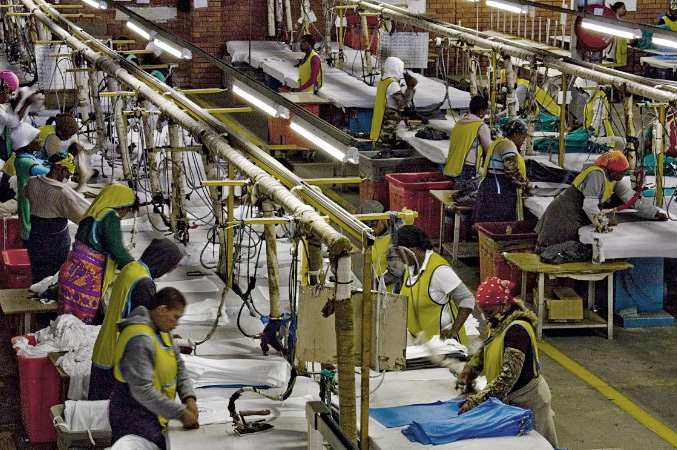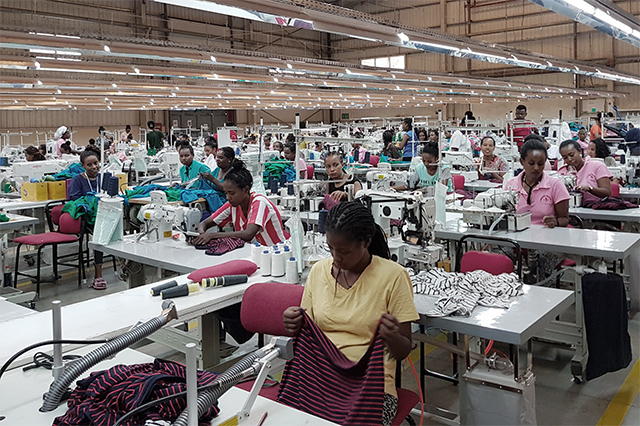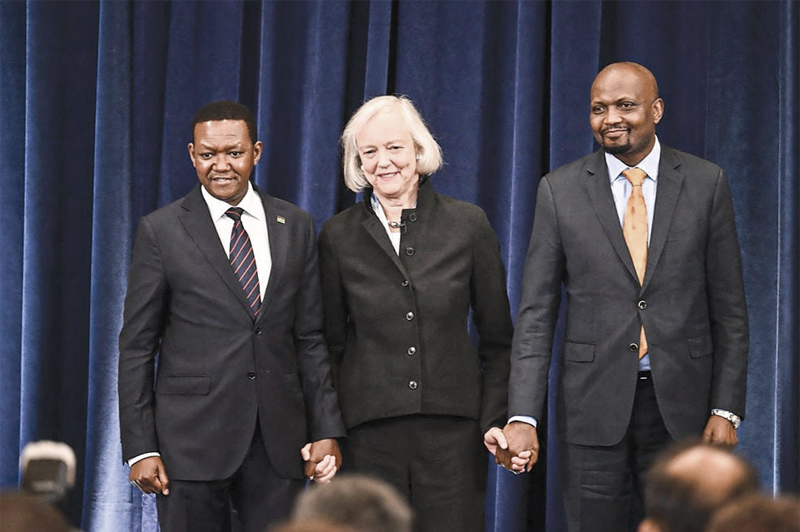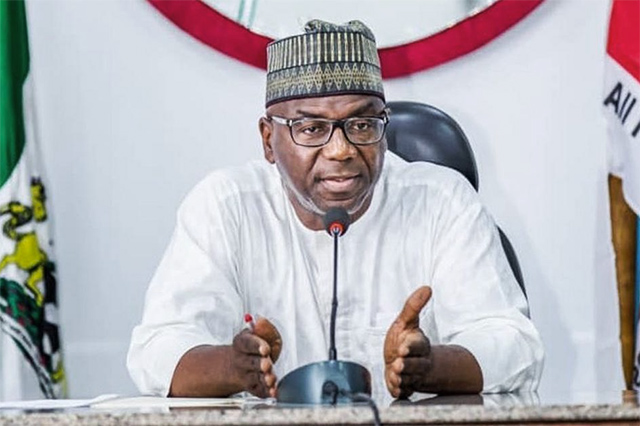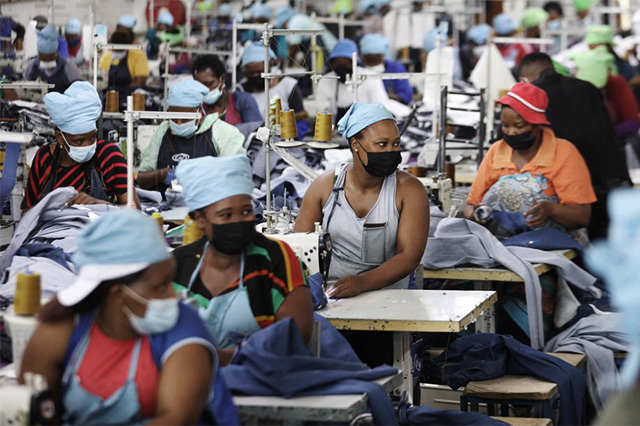Reviving Nigeria’s moribund textile industry
The Nigerian textile industry is grappling with enormous challenges and these has literally ground the sector to a halt.
In this piece, CHIKA MEFOR writes on the need to provide a lifeline for this all important sector.
Nigeria’s modern textile industry which started in 1956 with the establishment of the Kaduna Textile Mills Limited had about 63 per cent of the textile manufacturing capacity in West Africa.
The industry has passed through various phases of growth and until the 1980s; it was one of the most vibrant in the world.
At its peak during the period, the industry provided about 500,000 direct jobs with over 250 functional factories and was renowned as the largest employer of labour in the manufacturing sector.
The sector, however, started to witness some decline in its fortunes at the turn of the millennium with the closure of some major factories while some others relocated to other countries within the sub-region.
As at the dawn of the millenium, only about 25 textile companies are functional in the country with widespread concerns that even those functioning were barely managing to survive as the operating environment was to put it mildly, utterly unfriendly.
The current capacity utilization in the industry is only 30 per cent of installed capacity and this development has allowed for the thriving of imported, mostly smuggled counterfeited textile products, into the country.
Only recently, a report by the Federal Ministry of Trade, Industry and Investment said more textile industries are closing down daily. The report attributed the situation to an aggregation of a lot of factors, ranging from obsolete machinery, high interest rate, inadequate infrastructure, to lack of improvement in the local sourcing of raw materials.
Indeed, this has further increased the tempo of calls for the nation’s stakeholders and government at all levels to synergise with a view to bringing the sector back to life.
Perhaps it was in appreciation of the call that the RMRDC recently convened a training for stakeholders in Lagos.
Speaking at the opening ceremony of an entrepreneurship training on garment production for local and international markets in Lagos, organised by the Raw Materials Research and Development Council (RMRDC) in collaboration with Crown Natures Nigeria Limited, the Minister of State for Industry, Trade and Investment, Hajia Aisha Abubakar, identified the cotton, textile and garment industry as a sector with high potentials for a quick-win in government’s effort at economic diversification.
The minister, represented by the director of development, Mr Kunle Olorode, said the federal government has approved what he reffered to as the “CTTG policy” which serves as a working document to address the challenges and provide the platform for the development of the industry and to fast track the revival of the sector.
Earlier in his remarks, the director-general of the Raw Materials Research and Development Council (RMRDC), Dr Husseini Ibrahim, decried the state of the Nigerian textile sector, noting that one of the major reasons for decreasing cotton production in Nigeria is the non-availability of quality seeds at reasonable prices.
The RMRDC boss noted that a number of farmers rely on procurement of cotton seeds from ginneries a development which leads to poor resistance of the crops to plant diseases and resultant low yield since the seeds lack standardisation.
Highlighting some of the RMRDC’s interventions, Ibrahim said the council has been at the forefront of promoting industrial cotton production locally, saying it has developed improved cotton varieties in collaboration with the Institute of Agricultural Research (IAR), Zaria.
“Among the varieties already developed are Samcot 8, 9, 10, 11, 12 and 13. Samcot 8 and 9 are particularly suitable for North East and North West, while Samcot 9 and 10 are most adapted to the North Central Zone,” he stated.
He listed other areas of the council’s intervention to include a techno-economic survey of the Nigerian textile industry conducted in 1988/89, and updated in 1992, 1996, 1999, 2003 and 2006 and 2009; national survey on cotton as an agricultural commodity in 2004;
The RMRDC helmsman also said the council provided support to farmers through boosting the supply of agricultural raw materials for industrial use programme with 6.0 tons of improved cotton seeds and farm inputs for application on their farms in 2015, and in 2016, the distribution of 4.3 tons of improved cotton seeds to farmers.
He further said that plans are under way to implement a strategic programme that will aggressively increase the cultivation of cotton in all the producing zones of the country; initiate, maintain and sustain a National Programme that will lead to development of extra-long, staple cotton varieties that are suitable for cultivation at the cotton producing zones of the country and promote investment in the Nigerian Cotton, Textile and Garment industry.
Ibrahim added that the council is currently discussing with some textile companies in China that are willing to relocate to Nigeria.
The director-general represented the director of agro and agriculture department, Dr Abimbola Ogunwusi, said the training workshop was imperative as modernization has necessitated the need for expanding textiles and garment production to meet up with the tide globally, noting that various countries have established textile industries which are not only fulfilling domestic needs but also playing vital roles in international distribution.
He said the training exercise aim to promote entrepreneurship spirit among youths adding that it was also designed to train prospective investors in the area of production of garments for local markets and for export.
Continuing, he said the participants will learn how to exploit the African Growth and Opportunity Act (AGOA) market which has been extended for another 11 years.
But what are the key challenges impeding the growth of textile industry and how best can this be resolved so as to provide a permanent lifeline for this all important sector?
Alhaji Hamma Kwajaffa, is the director-general of the Nigerian Textile Manufacturers Association (NTMA). He identified power and energy as the major challenge in the sector, saying this is affecting Nigerian’s level of competitiveness in the sector.
Kwajaffa also identified smuggling as another challenge that is damaging the sector,even as he urged Nigerian’s to help develop the sector by patronising made in Nigeria garments.
Interesting, the training workshop witnessed rich paper presentation among which is the one on African Growth and Opportunity Act (AGOA).
The paper on AGOA was delivered by the head of Nigerian Export Promotion Council (NEPC), AGOA Trade Resource Center, Joseph Ogungbade who insisted that the act, signed into law, May 18, 2000, is a preference program that provides duty-free treatment to the U.S imports of certain products from eligible sub-Saharan African countries.
He stated that only 39 Sub-Saharan African countries are currently eligible for the preference benefits, saying Nigeria secured AGOA eligibility in year 2000.
Ogungbade who identified textile as one of the 6400 eligible AGOA products tasked dealers on standardization, noting that though duty rates on apparel and textiles in the US is high, AGOA provides significant savings to importers.
Other presentation included one on “Strategies for sustainable raw materials supply for textile industries in Nigeria”, by a deputy director in the RMRDC, Dr Gabriel Awolehin who highlighted the importance of setting up a Textile Council of Nigeria to coordinate affair of the sector in Nigeria.
Awolehin said that the country can become a net exporter of textile raw materials to other countries If raw material potentials of Nigeria are fully exploited, saying it would save the nation a lot of foreign exchange, increasing GDP, generating employment and facilitating rapid diversification of the economy.
One important thread that runs through the workshop is the need to revive the nation’s decaying textile sector so as to provide job opportunities and ultimately boost the nation’s economy.
In this era of recession and a heightened cry for diversification, it will amount to utter understatement to advocate for aggressive efforts in providing lifeline to the textile sector.


